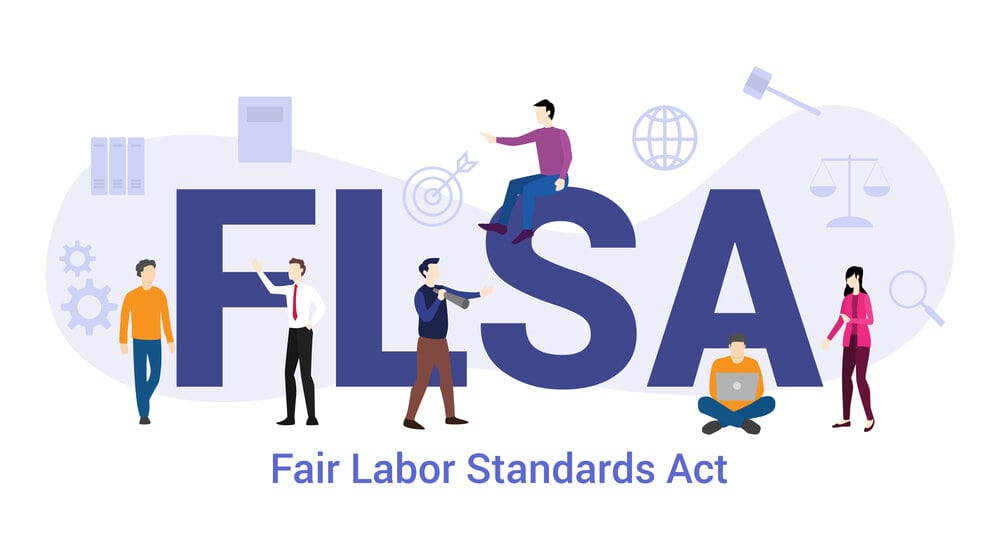To gain a deeper understanding of how legislation affects HR operations, we posed a question to five industry leaders, including Founders and CEOs. Their insights range from the impact of equality and diversity legislation to the classification implications of California Labor Code Section 515.5. Dive into their expert perspectives to navigate the legal landscape of HR.
- Equality and Diversity Legislation: Equal Opportunities
- Assembly Bill 5: Independent Contractor Challenge
- Family and Medical Leave Act: Employee Support
- Fair Labor Standards Act: Compliance Essential
- California Labor Code Section 515.5: Classification Implications
1. Equality and Diversity Legislation: Equal Opportunities
Equality and diversity legislation touch upon nearly every HR activity, particularly recruitment. For instance, one must be careful with the language used in job adverts to ensure they are gender-neutral and inclusive. Then, it is important to ensure the job advert is promoted across various job sites to attract a more diverse applicant pool.
The legislation also affects the screening and short-listing of applicants. HR must employ structured and unbiased hiring practices to ensure that selection is based solely on merit and relevant experience, rather than unconscious biases. This often involves training hiring managers on how to avoid unconscious bias.
The laws impact ongoing employee management and development. Initiatives like equal opportunities for advancement and provisions for reasonable accommodation are not just good practices but are often legally mandated to ensure an inclusive work environment.
Geoff Newman, Founder, Starget.co.uk
2. Assembly Bill 5: Independent Contractor Challenge
The passage of Assembly Bill 5 (AB5) in California made it impossible for us to keep our independent contractors living in the state. We had to inform about 20 independent contractors that we could no longer collaborate because of the employee status guaranteed by this new law.
Despite still receiving dozens of applications from California and other states with similar laws, we are forced to reject them. It’s challenging as these individuals aspire to be independent contractors, setting their own hours for companies like ours. Still, we cannot afford to employ individuals who don’t work 40 hours a week.
Ben Walker, CEO, Ditto Transcripts
3. Family and Medical Leave Act: Employee Support
The Family and Medical Leave Act (FMLA) has notably influenced our HR operations. Just last year, one of our key trainers had to take extended leave for a family emergency. Because of the FMLA, she was assured her position would remain secure during her absence.
The Act meant we had to provide her with the necessary support and time off, ensuring no adverse effects on her career. It’s a reminder that legislation doesn’t just shape policy, but touches the lives of our team members in deeply personal ways.
Derek Bruce, First Aid Training Director, Skills Training Group
4. Fair Labor Standards Act: Compliance Essential
The Fair Labor Standards Act (FLSA) significantly impacts our human resources department. It establishes minimum wage, overtime pay, and other employment practices as standards. Compliance with the FLSA is essential to avoid legal consequences.
The FLSA requires HR to correctly classify employees as exempt or non-exempt from overtime, meticulously monitor work hours, and ensure correct wage payments. The FLSA’s child labor regulations also affect hiring practices.
Noncompliance can cause costly lawsuits. While the Fair Labor Standards Act (FLSA) establishes essential labor standards, it places a significant burden on HR to ensure compliance. Therefore, a comprehensive understanding and accurate documentation are essential.
Derek Bruce, First Aid Training Director, Glasgow First Aid Courses
5. California Labor Code Section 515.5: Classification Implications
California Labor Code Section 515.5 establishes a minimum threshold of $53.80 an hour for “computer software employees” to be considered exempt employees.
This effectively creates a non-exempt group of workers within our business, who are mostly those at an earlier stage of their careers.
While we fully comply with the rules, hourly tracking seems an odd fit for a fully remote software business that rarely requires a 40+ hour week.
Trevor Ewen, COO, QBench
Expert Tips to Navigate the HR Legal Landscape
Navigating the complex web of HR legislation doesn’t have to be a daunting task. Let’s delve into some valuable tips straight from the experts, to help you stay compliant and foster a better work environment.
- Inclusivity First: Geoff Newman recommends using gender-neutral language in job adverts and promoting them across various platforms to attract a diverse applicant pool.
- Be Proactive About AB5: If you operate in California or similar states, Ben Walker suggests considering full-time employment models for roles typically held by independent contractors.
- FMLA Guidelines: Derek Bruce emphasizes having a robust support structure for employees who need to take family or medical leave, making sure their positions are secure during their absence.
- FLSA Compliance: Derek Bruce adds that accurate classification of employees and meticulous documentation are keys to avoiding legal consequences.
- Adapt and Adjust: For companies like Trevor Ewen’s, which are remote and in the software business, being flexible with hour tracking can be advantageous as long as it’s compliant with California Labor Code Section 515.5.
Our Analysis and Five Takeaways
In light of the expert advice and our deep dive into the subject, here are five significant points to consider:
- Unbiased Hiring: To combat unconscious bias in recruitment, consider employing AI-based screening tools that focus solely on skills and experience.
- Flexible Working Models: Given the challenges posed by AB5, explore alternative work arrangements, such as project-based contracts, that could sidestep the limitations set by the law.
- FMLA Resource Planning: Don’t just comply with FMLA; embrace it. Ensure you have contingency plans for critical roles so that the company’s operations aren’t affected during an employee’s extended leave.
- Regular Audits: It’s not just about setting up compliant systems; regular audits can help you spot any inadvertent non-compliance in areas such as wage payments and employee classification.
- Remote Work Policy: With remote work becoming increasingly common, make sure your remote work policies are in line with state-specific legislation, like the California Labor Code, to avoid potential complications.
Navigating the legal landscape may seem like a labyrinth, but with focused attention and a proactive approach, you can effectively manage your HR operations in compliance with these laws. After all, staying ahead of the curve doesn’t just minimize risk—it also fosters a workplace culture that’s fair, inclusive, and respectful to all.











